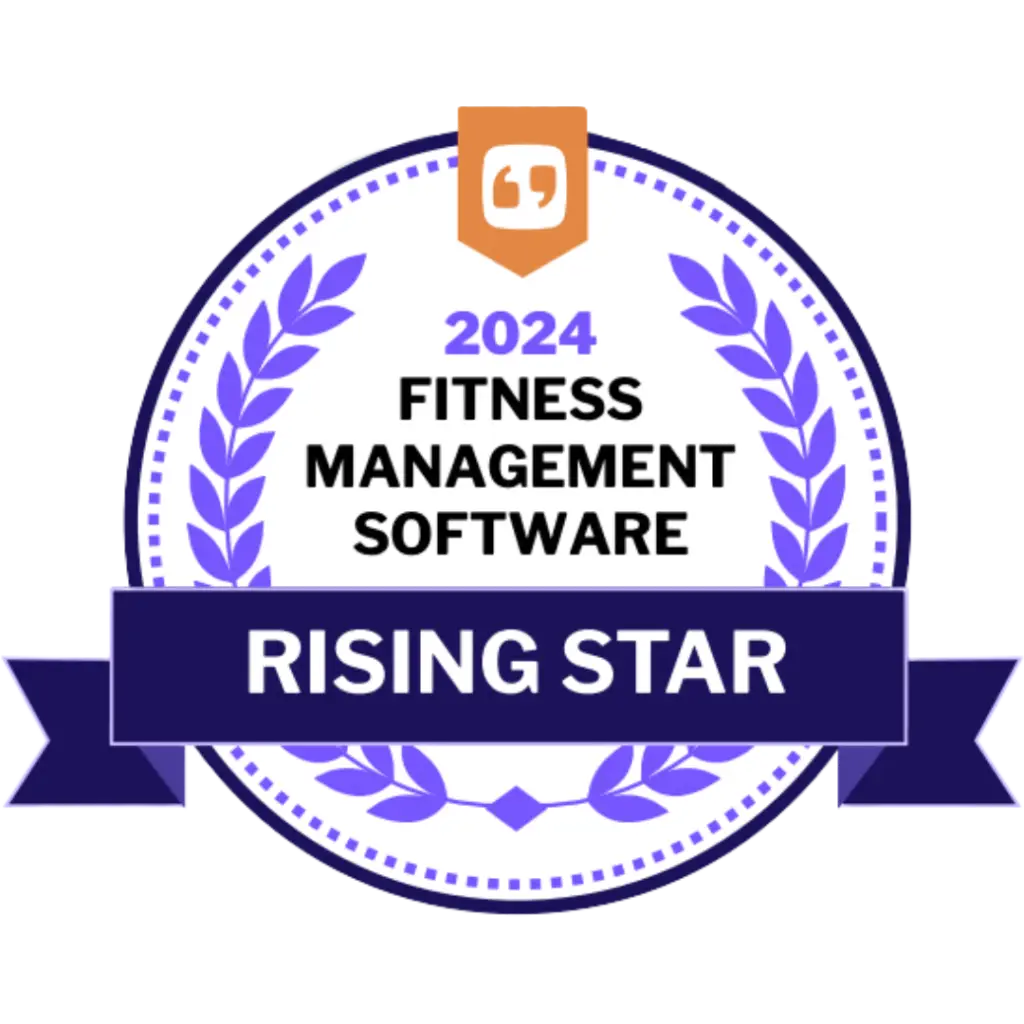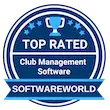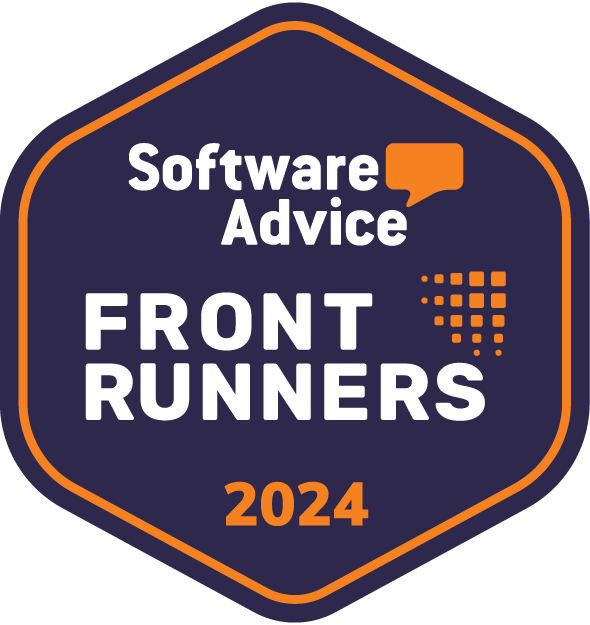Sports Facility Management Platform
We built our sports facility management platform to help sports coaches and trainers manage all of the ins and outs of running a successful youth sports training businesses – from managing registrations, accepting payments, marketing programs, and more.

5 Reasons Why you Need a Sports Facility Management Platform
In today’s competitive sports industry, effective youth sports club management is critical to success. Implementing a sports facility management platform can dramatically improve your club’s operations, transforming how it operates and enhancing its overall performance. Here are 5 benefits of investing in a sports facility management platform.
Utilizing a sports facility management platform streamlines operations by automating repetitive tasks like scheduling and collecting payments. This not only increases the overall efficiency of the operation but also frees up staff time, enabling them to focus on more value-adding tasks, like customer service and training athletes.
With features such as online booking, payment processing, and automated appointment reminders, sports facility management platforms significantly enhance the customer experience. This results in increased customer satisfaction, loyalty, and ultimately, higher retention rates.
A sports facility management platform can provide valuable insights by collecting and analyzing a wealth of data. This empowers you to make informed, data-driven decisions, which can improve the overall performance and profitability of your business.
Sports club apps help to efficiently manage and schedule facilities and resources. This can result in higher utilization rates, no double-booking, and improved coordination of all of the programs and activities you have taking place at any given moment.
At the end of the day, investing in a sports facility management platform results in cost savings for your business. By increasing operational efficiency, improving resource utilization, and reducing the need for manual labor, sports scheduling software can lead to significant cost savings for the business — something crucial in a competitive market!
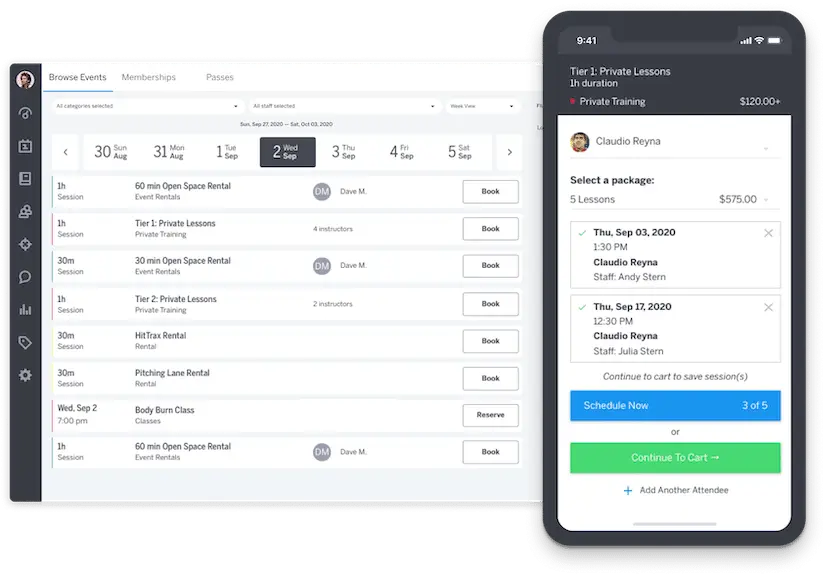
Bring any type of program to market in minutes.
Use Upper Hand to manage all of your sports facility offerings. With a flexible event creation workflow, you can build out your program settings to fit your business, not the other way around.
- Private and group lessons
- Training programs
- Classes
- Rentals
- Camps and clinics
- Auto-renewal memberships
- Credit passes
- Retail
Turn your sports facility's spaces into profit centers.
Manage Your Availability
Stay on top of your busy schedule. After creating your programs, simply add your availability, set scheduling deadlines, and start booking appointments.
Accept Payments Anywhere
Choose your payment methods and transact online, at the front desk, and in-person. Keep track of all things payments with real-time reporting.
Take Your Business On-The-Go
From checking attendance to communicating with your athletes, the Upper Hand mobile app keeps you connected wherever the day takes you.
700+ of the top sports training facilities & academies
use Upper Hand.
FAQs about Sports Facility Management Platforms
A sports facility management platform is a cutting-edge solution designed to revolutionize the way youth sports clubs and teams are operated and managed. This powerful software automates administrative tasks, streamlining scheduling, registration, and appointment booking. It offers member management, staff and resource management, real-time business analytics, and mobile accessibility of your sports facility. The software’s intuitive interface allows you to ensure that every court, field, or facility space is optimally utilized. This, in turn, leads to increased revenue generation and better customer satisfaction.
Sports club scheduling and management software features include client scheduling and registration, resource and staff management, membership management, inventory tracking, financial reporting, mobile accessibility, and more. For more information about each of these features, request a demo of Upper Hand!
Sports facility management platforms benefit your sports club by automating administrative tasks, optimizing facility usage, increasing revenue, and providing real-time analytics for data-driven decision-making. It enhances client satisfaction through a seamless booking experience, reducing barriers to entry to train at your facility.
A sports facility management platform is highly scalable and can adapt to various facility sizes and types. Whether you manage a small single-sports facility, or a large multi-sport complex – or a number of different facility locations, you can benefit from investing in a sports club app. The best sports club softwares are customizable to meet your unique needs and requirements as a sports business owner.
An app for sports facility management improves customer experiences through streamlined scheduling and registration processes, secure payment processes, mobile accessibility, personalized services, and streamlined communication. Essentially, a sports club management software makes it easy for clients to do business with your business.
A sports facility management platform optimizes facility usage by showing which spaces are double booked or going unused. Additionally, sports management software provides efficient scheduling, real-time analytics, and even streamlined communication to promote available spaces and programs, all of which ultimately lead to increased revenue.
Sports Facility Management Platform
In the dynamic world of sports, an advanced tool has emerged that is revolutionizing the management of athletic facilities: sports facility management platforms.
This game-changing software has transformed how sports centers are operated, providing an efficient solution for streamlining and automating the numerous tasks required in sports facility management. For those unfamiliar with the term, a sports facility management platform is a comprehensive digital tool designed to ease the operation of sports facilities.
Imagine a software capable of doing everything, from scheduling to syncing with your favorite calendar app, in just a few clicks. This is just the beginning of how these platforms enhance operational efficiency; they are the unsung heroes in the athletic facility.
One of the key functionalities of the sports facility management platform is its sports facility scheduling software. This robust feature ensures efficient allocation and utilization of resources for different sporting events. Forget about double bookings, missed appointments, or inefficient resource utilization; these platforms provide convenience and transparency through digitalized scheduling.
However, the functionality does not stop at scheduling. An athletic facility booking system is another indispensable feature of these management platforms. It allows users to make reservations in advance, ensuring a smooth process for patrons and management.
The platforms eliminate the need to physically check facility availability, slash manual work, and avoid unnecessary complications. The role and importance of a sports facility management platform are not merely restricted to easing managerial tasks; they go much farther. These platforms provide holistic solutions covering every management aspect, ensuring the best possible service for facility users.
These platforms cover everything from staff management and equipment inventory to budgeting and reporting tools. As the world continues to digitize, platforms that facilitate the easier management of sports facilities become more crucial. The sports management platform is essentially a digital command center for a sports facility, providing symmetric data and efficient task execution, keeping the operational wheels running smoothly.
The world of sports facility management is constantly evolving; embracing these platforms is no longer optional but essential to keep ahead of the curve. Remember that the players may change in sports, but the game’s rules remain the same. Just as the athlete must adapt to the changing dynamics of the game, so too must the arenas where the games unfold. The sports facility management platform is an invaluable part of that change, enabling those who manage the infrastructure to keep pace with the vigor of the sports field.
As we have seen above, sports facility management software can help with the ‘boring’ business side of facility management, — so let’s explore this crucial area in more detail.
The Business Side of Sports Facility Management
The world of sports is no longer limited to athletes and competitions. It has evolved into a dynamic and comprehensive industry with profound implications for business, technology, and society. A pivotal part of this landscape is the business side of sports facility management, which covers various aspects, from reservation systems to administrative platforms.
Sports facility management companies play a crucial role in streamlining operations and enhancing the utilization of sports facilities. They integrate cutting-edge technologies into user-friendly solutions such as sports facility scheduling software and booking systems. These tools are not limited to scheduling and booking but offer comprehensive services, stretching to maintenance, staffing, marketing, and financial management.
A prominent feature of these management systems is the sports facility reservation system, revolutionizing bookings. Gone are the tedious paperwork and schedules that took hours to adjust. This system allows users to easily book their desired slots on their chosen courts or sports facilities, minimizing difficulties in on-spot bookings and ensuring a seamless experience for the end user.
Plus, a wave of technology, like the court booking app and court reservation software, has brought about a paradigm shift in sports facility management. With a simple tap, one can reserve a court, view the schedule, change the booking, or even cancel it. This level of convenience provided to clients improves efficiency and improves customer satisfaction.
The impressive lineup of tools extends to sports facility administration platforms and sports facility management software. These platforms offer an all-pervasive control system that eases the administrative burden. From staff scheduling to finance tracking, from maintenance to inventory management, these platforms round out the aspects crucial to the smooth running of sports facilities.
However, it is essential to highlight that the industry will encounter unprecedented challenges as these systems continue to evolve. Data privacy, cybersecurity, and interoperability are critical issues that companies need to address, especially as customer trust and data security take center stage in business.
Let’s now explore how this software can help with athletic facility management.
Athletic Facility Management
Athletic facility management is a specialized field within the sports industry. It encompasses the planning, organizing, directing, controlling, and budgeting for various sports facilities ranging from stadiums, arenas, gyms, and fitness centers to lesser-known venues such as squash courts, dance studios, and batting cages. This management includes scheduling and reservation systems that streamline operations, enhance the user experience, and optimize resources.
One such innovation within this high-energy realm pertains to sports facility reservation systems. These technologically advanced platforms are designed to simplify, automate, and manage the booking process for sports facilities. They empower users to reserve their preferred time slots, book any special equipment, pay online, and even check the availability of facilities on the go. Importantly, they ensure a fair and transparent reservation process and reduce the chances of double bookings, missed appointments, and other scheduling gaffes.
The inception of sports facility booking apps has both revolutionized and democratized access to sporting venues. Unlike traditional methods, these apps reduce the need for prospective users to physically visit the facility or make phone calls for reservations. Now, they can book a tennis court, a basketball court, or a swimming lane from the comfort of their home, work, or anywhere in between at any hour of the day. These digital platforms not only enhance the convenience factor for the end-users but also broaden the customer base for the facility owners.
The concept of court booking systems follows the same trajectory, primarily focusing on reserving specific sports courts for personal, team, or organizational usage. Whether a neighborhood basketball court or a state-of-the-art tennis complex, a robust court booking system allows seamless scheduling, easy payment processing, and streamlined communication between facility managers and users.
Sports facility scheduling software takes things a step further. This comprehensive solution goes beyond mere booking and directly impacts the athletic facility management repertoire. Such software can handle complex scheduling requests, manage recurring bookings, process refunds and cancellations, provide analytics and reports, and even integrate with marketing tools to promote the facilities.
With its roots in the dynamic world of sports, athletic facility management has evolved immeasurably. While manual systems previously ruled, today’s digital solutions promise increased efficiency, productivity, and satisfaction. But what should you look for when choosing the best sports facility management platforms?
Best Sports Facility Management Platforms
With the advent of the digital era, the sports industry has significantly evolved, broadening its horizons and integrating technology in all dimensions, including sports facility management. Aiming at efficiency, precision, and user-friendly experiences, the software market has surged with some of the best sports facility management platforms — like Upper Hand’s.
These software solutions empower organizations to streamline operations, engage their audience more effectively, and ultimately bolster their bottom line. The best sports facility management platforms offer numerous functionalities crucial for efficient sports facility operations. They facilitate seamless booking and reservation systems, reducing administrative work and improving customer service.
By transforming manual processes into automated systems, user satisfaction increases, and so does the center’s productivity. Another transformative feature is gym management software. In recent years, the demand for a modern, flexible, and extensive software solution for gym management has soared significantly. The gym management software ensures the smooth running of day-to-day operations, scheduling group classes, managing personal training sessions, and dealing with member check-ins, among other things. All these contribute to sports facilities’ overall management and efficiency, streamlining workflow and saving time and effort.
When we think of sports facilities management, it’s we must consider the facility booking and reservation system at the core of its operations. In a nutshell, it necessitates an efficient, easy-to-use system that can handle multiple bookings, offer secure payment options, and, most importantly, offer real-time visibility of availability to streamline the booking process.
An intuitive online booking system enhances the user’s booking experience and increases the facility’s occupancy rate by reducing the chances of double bookings or unfulfilled slots due to inefficient management.
An effective software solution should facilitate hassle-free booking with minimum steps and a user-friendly interface. Scalability and customization are also vital, where the software can accommodate changing needs and integrate company-specific operations.
While past success is an excellent measure of a platform’s proficiency, it’s crucial to anticipate future issues in the sports facility management industry. Manual intervention, security concerns, interoperability with other systems, and rigid software that can’t be customized to unique requirements continue to be challenges that industry innovators aim to overcome.
Looking forward, we expect to see a significant influence of cutting-edge technology trends such as IoT, AI, and Machine Learning on enhancing various functionalities for sports facility management platforms—let’s explore these changes in more detail.
The Evolution and Challenges in Sports Facility Management
The world of sports facility management has experienced a significant evolution, becoming a critical aspect of the sports industry. Analyzing its progression, one can trace its roots back to modest setups of earlier centuries, when sports was essentially an unstructured, informal practice.
Over the years, as sports formalized and professionalized, there was a growing need for dedicated spaces with proper facilities. This necessitated the rise of sports facility management. With the onset of innovations and advancements in technological realms, these dedicated sports spaces began to adopt and integrate sophisticated solutions. For instance, introducing sports facility management systems posed a game-changer.
These systems served as integrated platforms for managing the complex operations of sports facilities efficiently and effectively. By incorporating functionalities pertaining to facility booking, event scheduling, compliance monitoring, communication, and report generation, sports facility management systems facilitated smooth coordination and organization.
Another area that has witnessed significant development is sports facility maintenance software. Fixing a broken window or cleaning up the football turf is no longer a hassle. This software enables managers to schedule inspections, assign tasks, monitor progress, and ensure a well-maintained sports facility.
Plus, optimizer tools, often found in advanced athletic facility scheduling software, make it easier to avoid scheduling conflicts, providing a seamless user experience.
However, sports facilities management has not been without its challenges. Regardless of the facility’s scale, one of the most common pitfalls is ineffective management of space and resources. Miscommunication is another hurdle that can lead to misunderstandings among staff and users alike, causing disruption in operations. These issues, coupled with fluctuating demand, unpredictable wear and tear, and rising costs, present a complex landscape to navigate. The way the industry tackles these issues has implications for its future trajectory.
In the wake of these challenges, efficient sports facility management’s importance is even clearer. It’s a sector ripe for innovation and development – marked by informed decisions and proactive measures. As we race into the future, it is essential to harness sophisticated technologies, curated training programs for staff, and strategic facility management approaches to deal with impending challenges and complexities.
After all, we are athletes, energetic and focused, ready to take on anything that comes our way. With innovation, playfulness, and a dash of aggression, we can revolutionize sports facility management, one game at a time.
Sports Facility Management Platform
In the dynamic world of sports, an advanced tool has emerged that is revolutionizing the management of athletic facilities: sports facility management platforms.
This game-changing software has transformed how sports centers are operated, providing an efficient solution for streamlining and automating the numerous tasks required in sports facility management. For those unfamiliar with the term, a sports facility management platform is a comprehensive digital tool designed to ease the operation of sports facilities.
Imagine a software capable of doing everything, from scheduling to syncing with your favorite calendar app, in just a few clicks. This is just the beginning of how these platforms enhance operational efficiency; they are the unsung heroes in the athletic facility.
One of the key functionalities of the sports facility management platform is its sports facility scheduling software. This robust feature ensures efficient allocation and utilization of resources for different sporting events. Forget about double bookings, missed appointments, or inefficient resource utilization; these platforms provide convenience and transparency through digitalized scheduling.
However, the functionality does not stop at scheduling. An athletic facility booking system is another indispensable feature of these management platforms. It allows users to make reservations in advance, ensuring a smooth process for patrons and management.
The platforms eliminate the need to physically check facility availability, slash manual work, and avoid unnecessary complications. The role and importance of a sports facility management platform are not merely restricted to easing managerial tasks; they go much farther. These platforms provide holistic solutions covering every management aspect, ensuring the best possible service for facility users.
These platforms cover everything from staff management and equipment inventory to budgeting and reporting tools. As the world continues to digitize, platforms that facilitate the easier management of sports facilities become more crucial. The sports management platform is essentially a digital command center for a sports facility, providing symmetric data and efficient task execution, keeping the operational wheels running smoothly.
The world of sports facility management is constantly evolving; embracing these platforms is no longer optional but essential to keep ahead of the curve. Remember that the players may change in sports, but the game’s rules remain the same. Just as the athlete must adapt to the changing dynamics of the game, so too must the arenas where the games unfold. The sports facility management platform is an invaluable part of that change, enabling those who manage the infrastructure to keep pace with the vigor of the sports field.
As we have seen above, sports facility management software can help with the ‘boring’ business side of facility management, — so let’s explore this crucial area in more detail.
The Business Side of Sports Facility Management
The world of sports is no longer limited to athletes and competitions. It has evolved into a dynamic and comprehensive industry with profound implications for business, technology, and society. A pivotal part of this landscape is the business side of sports facility management, which covers various aspects, from reservation systems to administrative platforms.
Sports facility management companies play a crucial role in streamlining operations and enhancing the utilization of sports facilities. They integrate cutting-edge technologies into user-friendly solutions such as sports facility scheduling software and booking systems. These tools are not limited to scheduling and booking but offer comprehensive services, stretching to maintenance, staffing, marketing, and financial management.
A prominent feature of these management systems is the sports facility reservation system, revolutionizing bookings. Gone are the tedious paperwork and schedules that took hours to adjust. This system allows users to easily book their desired slots on their chosen courts or sports facilities, minimizing difficulties in on-spot bookings and ensuring a seamless experience for the end user.
Plus, a wave of technology, like the court booking app and court reservation software, has brought about a paradigm shift in sports facility management. With a simple tap, one can reserve a court, view the schedule, change the booking, or even cancel it. This level of convenience provided to clients improves efficiency and improves customer satisfaction.
The impressive lineup of tools extends to sports facility administration platforms and sports facility management software. These platforms offer an all-pervasive control system that eases the administrative burden. From staff scheduling to finance tracking, from maintenance to inventory management, these platforms round out the aspects crucial to the smooth running of sports facilities.
However, it is essential to highlight that the industry will encounter unprecedented challenges as these systems continue to evolve. Data privacy, cybersecurity, and interoperability are critical issues that companies need to address, especially as customer trust and data security take center stage in business.
Let’s now explore how this software can help with athletic facility management.
Athletic Facility Management
Athletic facility management is a specialized field within the sports industry. It encompasses the planning, organizing, directing, controlling, and budgeting for various sports facilities ranging from stadiums, arenas, gyms, and fitness centers to lesser-known venues such as squash courts, dance studios, and batting cages. This management includes scheduling and reservation systems that streamline operations, enhance the user experience, and optimize resources.
One such innovation within this high-energy realm pertains to sports facility reservation systems. These technologically advanced platforms are designed to simplify, automate, and manage the booking process for sports facilities. They empower users to reserve their preferred time slots, book any special equipment, pay online, and even check the availability of facilities on the go. Importantly, they ensure a fair and transparent reservation process and reduce the chances of double bookings, missed appointments, and other scheduling gaffes.
The inception of sports facility booking apps has both revolutionized and democratized access to sporting venues. Unlike traditional methods, these apps reduce the need for prospective users to physically visit the facility or make phone calls for reservations. Now, they can book a tennis court, a basketball court, or a swimming lane from the comfort of their home, work, or anywhere in between at any hour of the day. These digital platforms not only enhance the convenience factor for the end-users but also broaden the customer base for the facility owners.
The concept of court booking systems follows the same trajectory, primarily focusing on reserving specific sports courts for personal, team, or organizational usage. Whether a neighborhood basketball court or a state-of-the-art tennis complex, a robust court booking system allows seamless scheduling, easy payment processing, and streamlined communication between facility managers and users.
Sports facility scheduling software takes things a step further. This comprehensive solution goes beyond mere booking and directly impacts the athletic facility management repertoire. Such software can handle complex scheduling requests, manage recurring bookings, process refunds and cancellations, provide analytics and reports, and even integrate with marketing tools to promote the facilities.
With its roots in the dynamic world of sports, athletic facility management has evolved immeasurably. While manual systems previously ruled, today’s digital solutions promise increased efficiency, productivity, and satisfaction. But what should you look for when choosing the best sports facility management platforms?
Best Sports Facility Management Platforms
With the advent of the digital era, the sports industry has significantly evolved, broadening its horizons and integrating technology in all dimensions, including sports facility management. Aiming at efficiency, precision, and user-friendly experiences, the software market has surged with some of the best sports facility management platforms — like Upper Hand’s.
These software solutions empower organizations to streamline operations, engage their audience more effectively, and ultimately bolster their bottom line. The best sports facility management platforms offer numerous functionalities crucial for efficient sports facility operations. They facilitate seamless booking and reservation systems, reducing administrative work and improving customer service.
By transforming manual processes into automated systems, user satisfaction increases, and so does the center’s productivity. Another transformative feature is gym management software. In recent years, the demand for a modern, flexible, and extensive software solution for gym management has soared significantly. The gym management software ensures the smooth running of day-to-day operations, scheduling group classes, managing personal training sessions, and dealing with member check-ins, among other things. All these contribute to sports facilities’ overall management and efficiency, streamlining workflow and saving time and effort.
When we think of sports facilities management, we must consider the facility booking and reservation system at the core of its operations. In a nutshell, it necessitates an efficient, easy-to-use system that can handle multiple bookings, offer secure payment options, and, most importantly, offer real-time visibility of availability to streamline the booking process.
An intuitive online booking system enhances the user’s booking experience and increases the facility’s occupancy rate by reducing the chances of double bookings or unfulfilled slots due to inefficient management.
An effective software solution should facilitate hassle-free booking with minimum steps and a user-friendly interface. Scalability and customization are also vital, where the software can accommodate changing needs and integrate company-specific operations.
While past success is an excellent measure of a platform’s proficiency, it’s crucial to anticipate future issues in the sports facility management industry. Manual intervention, security concerns, interoperability with other systems, and rigid software that can’t be customized to unique requirements continue to be challenges that industry innovators aim to overcome.
Looking forward, we expect to see a significant influence of cutting-edge technology trends such as IoT, AI, and Machine Learning on enhancing various functionalities for sports facility management platforms—let’s explore these changes in more detail.
The Evolution and Challenges in Sports Facility Management
The world of sports facility management has experienced a significant evolution, becoming a critical aspect of the sports industry. Analyzing its progression, one can trace its roots back to modest setups of earlier centuries, when sports was essentially an unstructured, informal practice.
Over the years, as sports formalized and professionalized, there was a growing need for dedicated spaces with proper facilities. This necessitated the rise of sports facility management. With the onset of innovations and advancements in technological realms, these dedicated sports spaces began to adopt and integrate sophisticated solutions. For instance, introducing sports facility management systems posed a game-changer.
These systems served as integrated platforms for managing the complex operations of sports facilities efficiently and effectively. By incorporating functionalities pertaining to facility booking, event scheduling, compliance monitoring, communication, and report generation, sports facility management systems facilitated smooth coordination and organization.
Another area that has witnessed significant development is sports facility maintenance software. Fixing a broken window or cleaning up the football turf is no longer a hassle. This software enables managers to schedule inspections, assign tasks, monitor progress, and ensure a well-maintained sports facility.
Plus, optimizer tools, often found in advanced athletic facility scheduling software, make it easier to avoid scheduling conflicts, providing a seamless user experience.
However, sports facilities management has not been without its challenges. Regardless of the facility’s scale, one of the most common pitfalls is ineffective management of space and resources. Miscommunication is another hurdle that can lead to misunderstandings among staff and users alike, causing disruption in operations. These issues, coupled with fluctuating demand, unpredictable wear and tear, and rising costs, present a complex landscape to navigate. The way the industry tackles these issues has implications for its future trajectory.
In the wake of these challenges, efficient sports facility management’s importance is even clearer. It’s a sector ripe for innovation and development – marked by informed decisions and proactive measures. As we race into the future, it is essential to harness sophisticated technologies, curated training programs for staff, and strategic facility management approaches to deal with impending challenges and complexities.
After all, we are athletes, energetic and focused, ready to take on anything that comes our way. With innovation, playfulness, and a dash of aggression, we can revolutionize sports facility management, one game at a time.
Related Reading:
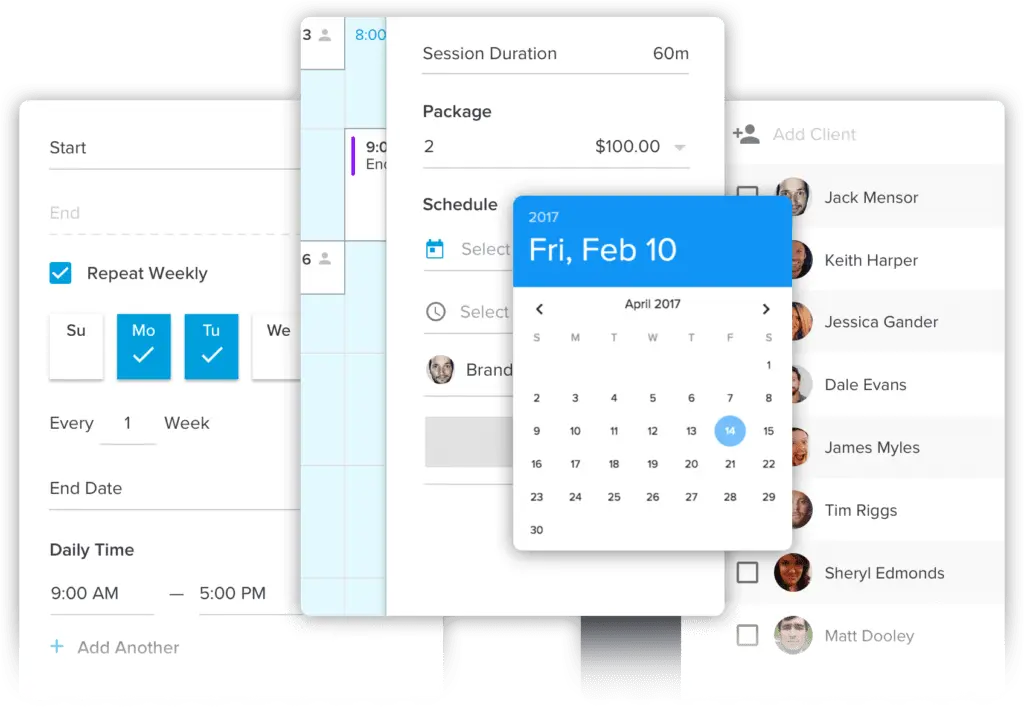
Best Sports Facility Management Platform
Book a demo to see how Upper Hand can help you manage your sports facility like a pro!






